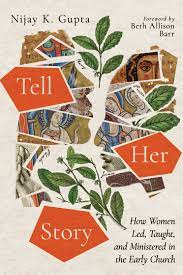The best way to persuade someone is to martial facts, develop multiple lines of argument, refute all your opponent’s views, and never give an inch. Right? Well, probably not.
 The most effective negotiators and debaters, as described by Adam Grant in Think Again, employ three surprising approaches that can actually help change people’s minds.*
The most effective negotiators and debaters, as described by Adam Grant in Think Again, employ three surprising approaches that can actually help change people’s minds.*
Be simple.
Don’t pile up too many arguments. Such an approach can backfire for two reasons. One is that doing so can make listeners feel threatened emotionally and intellectually. A natural response is to throw up defenses. Their minds go into overdrive looking for flaws in and counterarguments against what we are saying.
Another problem is that not all our arguments will be equally strong. Listeners have an uncanny radar for picking out the weakest argument, tearing that down, and then on the basis of that dismissing our whole case.
Counterintuitively it is better to focus on just one or two of our strongest ideas. Doing so doesn’t tend to trigger resistance as much, and it leaves us less vulnerable to a counterargument.
Be humble.
Admit when someone else is right. When we say that we are wrong or don’t know something, we don’t weaken our case. Rather this has two unexpected benefits.
One is that it makes us look more objective and thus lends credibility to everything else we say. This makes people less defensive and more open to our ideas.
Another result is that when we agree on common ground, it lessens the adversarial nature of our encounter. Instead of being opponents, we move together toward finding good solutions for all.
A variation on this is to affirm those you disagree with whenever possible. Tell them that you believe they are people of sound judgment and that their motives are good. The temperature in such a discussion will go down as well as the defenses.
Be curious.
The most effective persuaders ask many more questions than average persuaders. By honestly trying to find out what someone thinks, we can learn more about what motivates them, where we can affirm them, and thus work toward ideas that will meet their concerns and ours.
 Genuine open-ended questions can also do a better job of helping people examine their own viewpoints than outright declarations. For example, we can ask:
Genuine open-ended questions can also do a better job of helping people examine their own viewpoints than outright declarations. For example, we can ask:
* Something I’d love to know is, What evidence would change your mind?
* I’m curious, what do you think are the disadvantages or downsides of your view?
* I’m less concerned about my solution being the right one than finding a solution that really works. If you don’t like what I’m suggesting, how would you solve the problem instead?
* Tell me more. Why do you feel strongly about this issue?
In all this, we don’t have to convince someone on the spot. In fact, we probably won’t. But asking questions can plant a seed of doubt that can bear fruit in the long run.
Sometimes, the person who can best persuade us to think differently is ourselves.
—
*See chapters 5, 6, and 7 of Adam Grant, Think Again (New York: Viking, 2021), pp. 97-160.
photo credit: Pixabay RyanMcGuire

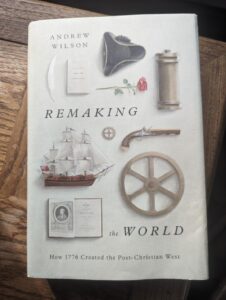
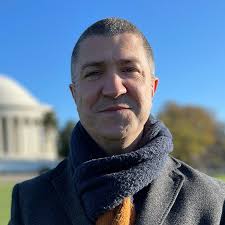 Wilson closes with three Christian themes from the 1770s to help navigate the weird world that decade has bestowed on us.
Wilson closes with three Christian themes from the 1770s to help navigate the weird world that decade has bestowed on us. My grandson was reading
My grandson was reading 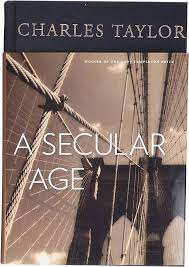 Finally, I pay attention to books that are referenced in more than one book I’ve read. The one that has risen to the top in recent years is A Secular Age by Charles Taylor. The book came out in 2007, and I have read a half dozen different books which make major use of Taylor’s framework and ideas. I confess that I have delayed diving into it because it is almost 900 pages and probably not the easiest read. But I think the time has come.
Finally, I pay attention to books that are referenced in more than one book I’ve read. The one that has risen to the top in recent years is A Secular Age by Charles Taylor. The book came out in 2007, and I have read a half dozen different books which make major use of Taylor’s framework and ideas. I confess that I have delayed diving into it because it is almost 900 pages and probably not the easiest read. But I think the time has come. Take what Paul says in his letter to the Galatians, for example. It’s a well-known verse often referenced in these discussions. “There is neither Jew nor Gentile, neither slave nor free, nor is there male and female, for you are all one in Christ Jesus” (Gal 3:28). This comes in the middle of a letter that is about making sure Gentiles are treated as full members in the body of Christ, not as second-class Christians. Law shouldn’t divide us, Paul says. Rather grace should unite us.
Take what Paul says in his letter to the Galatians, for example. It’s a well-known verse often referenced in these discussions. “There is neither Jew nor Gentile, neither slave nor free, nor is there male and female, for you are all one in Christ Jesus” (Gal 3:28). This comes in the middle of a letter that is about making sure Gentiles are treated as full members in the body of Christ, not as second-class Christians. Law shouldn’t divide us, Paul says. Rather grace should unite us. Paul’s passionate argument in Galatians calls on all of us to seriously ask questions such as, “How can we all proactively do more? What can we do to make sure that the women in our congregation are growing in Christ, learning more of his grace, growing in their love for God and others? Are there practical changes we can implement that will aid and encourage all groups (but especially those who may be sidelined, because that is Paul’s point) to more fully use their gifts for the building up of the body of Christ? How can we make sure the talents, experiences, and opinions of women are appreciated, that their dignity as people in the image of Christ is affirmed? In this context, how can we look to the interests of others first rather than our own (Phil 2:3-4)?”
Paul’s passionate argument in Galatians calls on all of us to seriously ask questions such as, “How can we all proactively do more? What can we do to make sure that the women in our congregation are growing in Christ, learning more of his grace, growing in their love for God and others? Are there practical changes we can implement that will aid and encourage all groups (but especially those who may be sidelined, because that is Paul’s point) to more fully use their gifts for the building up of the body of Christ? How can we make sure the talents, experiences, and opinions of women are appreciated, that their dignity as people in the image of Christ is affirmed? In this context, how can we look to the interests of others first rather than our own (Phil 2:3-4)?”


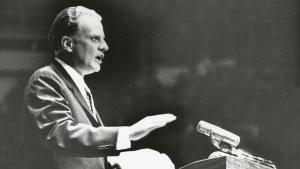 The word evangelical has a long history, going back about three hundred years in England to describe a movement intended to revive the token Christianity that was widespread at the time. In the mid-twentieth century, Billy Graham (who welcomed Catholics and African Americans) adopted the label to distinguish himself from fundamentalists. This latter group emerged in the early twentieth century, coming to national attention with the Scopes Monkey Trial of 1925. They believed the Bible was literal and inerrant, were doctrinally conservative, anti-science, and separated themselves from mainstream culture as well as from any believers who didn’t agree with them.
The word evangelical has a long history, going back about three hundred years in England to describe a movement intended to revive the token Christianity that was widespread at the time. In the mid-twentieth century, Billy Graham (who welcomed Catholics and African Americans) adopted the label to distinguish himself from fundamentalists. This latter group emerged in the early twentieth century, coming to national attention with the Scopes Monkey Trial of 1925. They believed the Bible was literal and inerrant, were doctrinally conservative, anti-science, and separated themselves from mainstream culture as well as from any believers who didn’t agree with them.
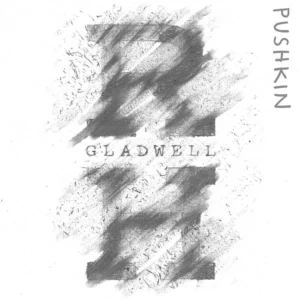 We could say something like, “But then I began to find evidence that contradicted my initial ideas.” Or, “I was stunned! Could I have been wrong about how beneficial intuition is?”
We could say something like, “But then I began to find evidence that contradicted my initial ideas.” Or, “I was stunned! Could I have been wrong about how beneficial intuition is?”
